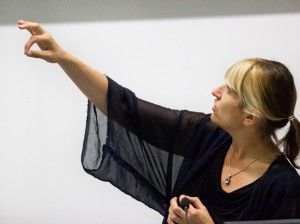NASA scientist to speak about observing Antarctica

March 26, 2012
Whether they gather microscopic bacteria from frozen lakes or study weather patterns through sound, scientists find the harsh conditions of Antarctica a conducive environment for research.
As part of the ongoing initiative “Antarctica – Imagined Geographies,” NASA scientist Claire Parkinson will speak at the Guyon Auditorium at 7 p.m. today observing Antarctica from space and again at noon Thursday in the Global Media Research Center about the challenges of reporting climate change.
Advertisement
Parkinson’s work has been instrumental in promoting conversation about climate change among policy makers and the public, said Peter Lemish, visiting professor at the School of Journalism and coordinator for the symposium.
Other scientists discussed their Antarctic experiences as part of the Southern Illinois University Carbondale College of Mass Communications and Media Arts multimedia collaboration, “Antarctica – Imagined Geographies,” which features events and exhibits through May 4.
A pioneer in the field of sonification, Andrea Polli has traveled to both polar regions, which she said are showing the effects of rapid climate change caused by global warming.
Polli, who is also an associate professor of art and ecology at the University of New Mexico, spoke Saturday about the influence extreme environments had on her work in sonification, which is the translation of scientific data into sound.
Polli said she collaborated with atmospheric scientists in Antarctica during her visit four years ago to produce her acoustic and visual work titled “Sonic Antarctica.”
She said the effects of human visitors on the fragile ecology of Antarctica prompts people to wonder why scientists need to be there at all.
“Why actually go there? Obviously, these are not places where everyone can or should go,” she said. “They’re experiencing major changes in the climate and the environment and humans obviously have a great impact on that.”
Advertisement*
Travelers to Antarctica are cautionedn about the need to keep the Antarctic pristine, said Laurie Achenbach, professor of microbiology and associate dean in the College of Science.
Achenbach said she visited Antarctica in 1998 and in 2000 to study the continent’s microbial bacteria in its permanently frozen lakes.
She said she took a survival course shortly after she arrived at McMurdo Station, a U.S. research base that reminded her of an old mining town, where she learned how to start a fire, build a shelter and find someone lost in a blizzard.
“To simulate a white-out condition, they actually put big white buckets over your head and then you try to find somebody who’s lying in the snow,” she said.
She collected water from different depths of the permanently frozen lakes through holes drilled in ice several meters thick, Achenbach said.
Achenbach said there was almost no mixing in the layers of water because the lakes they studied were permanently frozen.
Because of this, she said, organisms congregate at the depth, or zone, where the light, oxygen and chemical conditions are optimum for survival.
Michael Madigan, professor emeritus of microbiology in the College of Science, said he made eight visits to Antarctica. Similar to Achenbach, he also conducts research on microbial organisms that populate the continent’s permanently frozen lakes.
He said microorganisms living in Antarctic lakes are unlike those found anywhere else because of the extreme cold.
Madigan said the huge ship that resupplies McMurdo Station with all the supplies it needs to operate also carries out all the waste, and the United States provides the logistical support for most of the continent.
“There was wisdom with the Antarctic treaty,” he said. “The U.S. doesn’t put up with any monkey business down there. If you’re not into the rules, they just put you on a plane and kick you out.”
Advertisement







